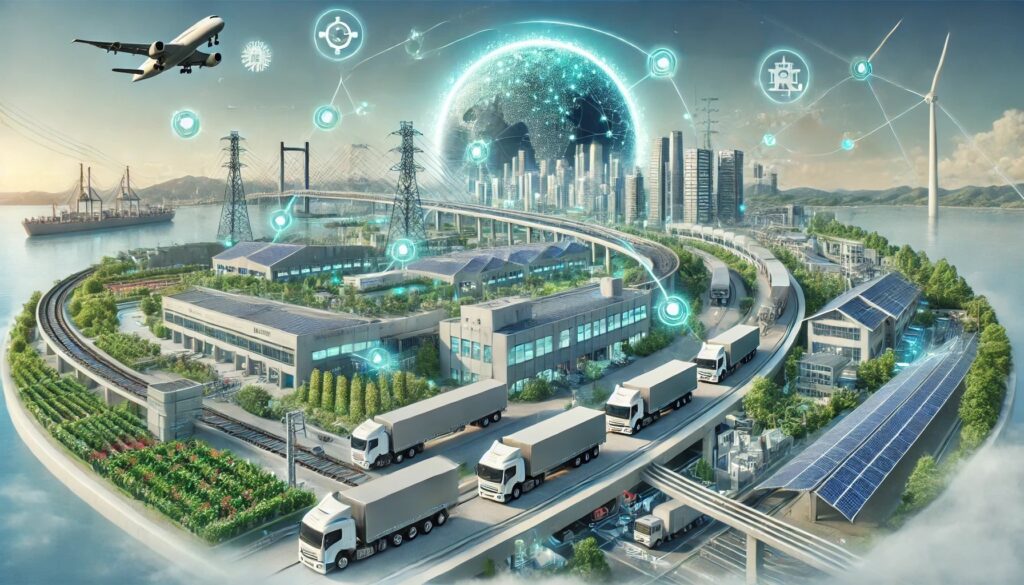Wednesday, September 25th, 2024
In light of the upcoming ALICE Logistics Innovation Summit (6-7 November 2024), we have a pleasure to announce that Professor Takayuki Mori, a renowned expert in logistics and supply chain management, will be one of the keynote speakers. His participation will highlight Japan’s efforts to address its logistics industry challenges, which are becoming increasingly relevant globally. In anticipation of his insights, we have read a recent article by Naoko Tochibayashi and Naoko Kutty from the World Economic Forum, which focuses on how Japan is addressing the challenges and building a sustainable future for its logistics sector.
Japan’s “2024 Problem”: a challenge and an opportunity
As Japan’s logistics industry continues to face a looming labour shortage, a pressing issue known as the “2024 problem” is accelerating reforms. With the government now limiting annual overtime for truck drivers to 960 hours, there are fears of a 14% shortage of drivers by 2024, rising to 34% by 2030. This has spurred both the public and private sectors into action to drive sustainable innovation.
Public-private collaboration
Japan’s response to this challenge has been proactive, with the government introducing a “Policy Package for Logistics Innovation” and guidelines to improve productivity across the sector. These initiatives call for a rethinking of traditional practices and encourage closer collaboration between shippers, consignees, and logistics operators. As the article points out, such coordinated efforts aim to increase efficiency and reduce logistics costs, while improving working conditions for drivers.
Physical Internet: a vision for the future
One of the key solutions being explored is the Physical Internet, a concept that ALICE has been promoting for years as part of its vision for future logistics. This visionary approach reimagines logistics as a global, open system of systems, where assets and resources are connected to maximise capacity, efficiency and productivity, thereby increasing supply chain agility and resilience. At its core, the Physical Internet supports the affordable transition of assets to Zero emissions logistics.
By embracing the Physical Internet model, Japan aims to reduce both the environmental footprint and inefficiencies in its logistics networks. Professor Mori will discuss how this concept is gaining traction and how this roadmap could have an impact on the future of logistics worldwide.
For those interested in learning more about the Physical Internet, we encourage you to explore the ALICE Roadmap to Physical Internet.

Technological innovations: NeLOSS system
One of the technological innovations is the NeLOSS system, developed by Next Logistics Japan. This automated dispatch and loading system uses quantum computing to optimise truck loading, significantly reducing operational inefficiencies. In practical terms, NeLOSS can reduce loading times from two hours to 40 seconds, improving both productivity and sustainability in logistics operations. This type of innovation is a direct response to Japan’s labour shortage and the growing demand for more efficient logistics solutions.
Collaborative efforts in the food retail industry
Japan’s food retail industry has also shown remarkable leadership in logistics transformation. Supermarkets in regions such as Kyushu and Hokkaido are working together to extend order and delivery lead times. This is improving supply chain efficiency. These collaborative efforts are also tackling food loss and promoting shared transport systems. All of this is helping to reduce emissions and improve the resilience of logistics networks.
Modal shift: a sustainable transition
Modal shift from road to rail and sea is another key strategy. Companies such as Takeda Pharmaceutical and Nippon Paper have already adopted this approach. It has resulted in both reduced emissions and increased transport efficiency. As Professor Mori will explore at the Summit, such modal shifts are key to achieving net-zero emissions, in line with ALICE’s vision of a future where logistics systems are highly interconnected and environmentally sustainable.
Global perspective on Japan’s innovations
Professor Mori’s engagement with the ALICE Logistics Innovation Summit provides an excellent opportunity to explore how Japan’s experience with the “2024 problem” offers lessons for Europe’s own logistics transformation. Through collaborative innovation, digital transformation, and a commitment to sustainability, Japan is not only addressing its immediate logistics challenges but also setting an example for a resilient, low-emission future.
